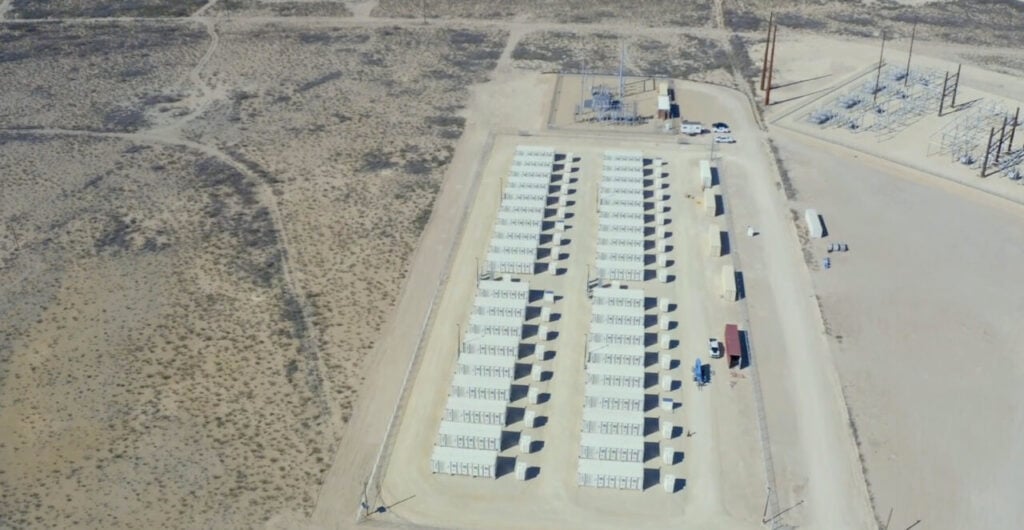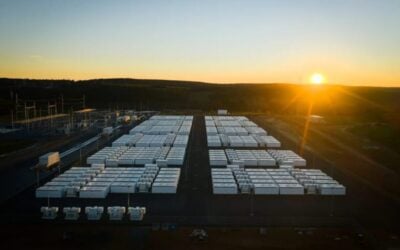
Texas, US, Governor Greg Abbott signed a law placing mandates on decommissioning battery energy storage system (BESS) facilities at the end of their lifecycle.
House Bill no. 3809 (HB 3809) was signed into law by Abbott on 29 May, and will take effect on 1 September. It will apply to BESS projects not owned by an electric utility.
HB 3809 was inspired by similar laws in the state for decommissioning wind and solar facilities.
The bill has two key provisions: establishing a decommissioning requirement for BESS facilities, including facility removal and land restoration and requiring financial security to cover decommissioning costs.
Try Premium for just $1
- Full premium access for the first month at only $1
- Converts to an annual rate after 30 days unless cancelled
- Cancel anytime during the trial period
Premium Benefits
- Expert industry analysis and interviews
- Digital access to PV Tech Power journal
- Exclusive event discounts
Or get the full Premium subscription right away
Or continue reading this article for free
Establishing a decommissioning requirement for BESS facilities
Standalone BESS projects and energy storage co-located with solar or wind must be decommissioned at the end of their lifecycle if they are not to be repowered.
Current law covers projects sharing an interconnection point. HB 3809 applies to projects that do not share a grid interconnection point.
The BESS project owner must remove all battery storage equipment, including battery storage units, transformers, substations, buried cables and power lines.
Foundations need to be excavated a minimum of 3 feet below the surface.
Additionally, the landowner may ask the lessee to remove roads, large rocks, reseed pastureland with native grasses, restore the land to a tillable condition using suitable soil treatment methods and ensure that all recyclable materials are gathered and sent for recycling.
Financial security to cover decommissioning costs
HB 3809 mandates that non-electric utility BESS lessees offer financial assurance to guarantee compliance with the new facility decommissioning obligations.
The project owner is required to provide financial assurance for the removal of the project. This financial security should fully cover the estimated costs for removal, land restoration, and recycling, minus the salvage value.
Cost estimates should be created by a licensed, independent third-party engineer in Texas, and they must be regularly updated.
The bill requires that financial assurance be delivered before the facility lease’s termination date or the facility’s 15th anniversary date.
Texas’ 89th Legislative Session
Several other bills relating to energy storage and clean energy have been proposed in Texas during this legislative session. HB 3809 is the only one Abbott has signed thus far.
Other bills introduced include Senate Bill 388 (SB 388), Senate Bill 715 (SB 715) and Senate Bill 819 (SB 819).
If passed, SB 388 would mandate that 50% of the generating capacity installed in the Electric Reliability Council of Texas (ERCOT) service area must come from dispatchable generation besides battery energy storage after 1 January, 2026.
SB 388 has been referred to State Affairs and is adjourned sine die, meaning a date has not been set to reconvene on the bill.
SB 715, and its companion, House Bill 3356, would retroactively enforce firming requirements on renewable energy facilities, which could lead to an unsustainable market and compel the early retirement of as much as 5 GW of wind generation capacity by 2026.
An analysis of the bill from power market analytics firm Aurora Energy Research found that its implementation would likely increase consumer electricity costs and weaken system reliability.
The session for this bill has also been adjourned sine die.
SB 819 mandates that wind and solar projects secure a permit from the Public Utility Commission (PUC), a requirement not imposed on coal, gas, or nuclear energy projects, to which the bill does not apply.
Solar Energy Industries Association (SEIA) wrote of SB 819:
“The legislation adds onerous requirements to new solar projects that would not apply to other energy sources except wind. Experts warn that, if passed, the legislation would risk the state’s ability to meet fast-rising energy demand by making it exceedingly difficult and more expensive to build new clean energy projects. The bill also threatens to harm rural communities that rely on the payments for landowners and tax income from these projects.”
The session for SB 819 has also been adjourned sine die.





